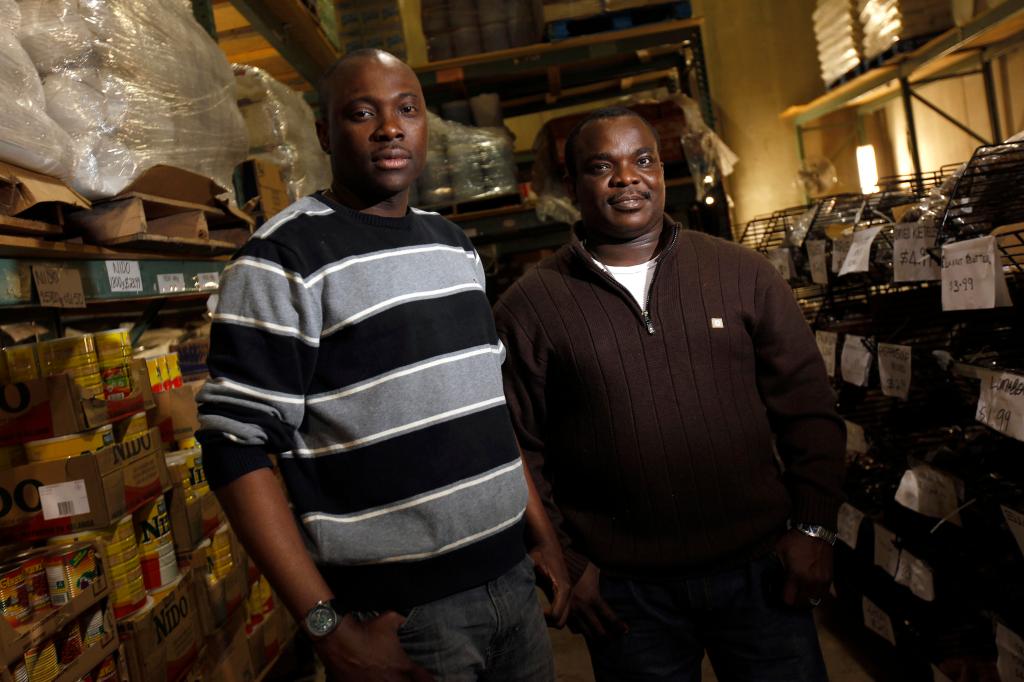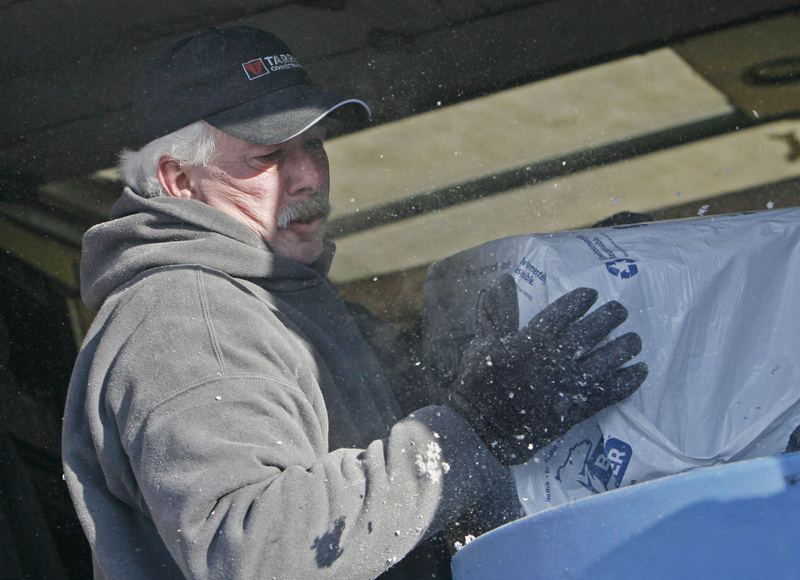MINNEAPOLIS – When Salah Tarraf’s Minneapolis construction firm won contracts last June to weatherize homes in Hennepin and Ramsey counties with federal stimulus money, he was thrilled. The joy didn’t last long. Six banks refused to lend money to expand his company, despite a solid loan history.
It forced Tarraf to tap his home equity, credit cards and friends to buy four trucks so he could begin the work.
Tarraf’s homespun fundraising wasn’t enough. His 24-man firm still needs a $400,000 loan, so he has turned to small-scale nontraditional lenders who can be the only source of capital for small firms.
These lenders are nonprofits and governmental programs that, working in tandem, offer small loans to firms turned down by recession-bitten banks.
“If the financing does come, I have these contracts that we want to honor and fulfill,” said Tarraf, who was born in Senegal and opened Tarraf Construction 10 years ago. “We want to see growth and of course create jobs.” Proceeds from the $3 million in contracts are enough to repay the debt, he said.
He expects to get financing from the nonprofit Metropolitan Economic Development Association, or MEDA, and the state’s Urban Initiative Program, or UIP. With $250,000 from MEDA, and an additional $150,000 from UIP, Tarraf says he can expand his operation to insulate 20 homes a week, up from 12.
“Getting access to capital for small businesses has been the toughest challenge we have had for 18 months,” said Mike Ryan, director of the Twin Cities Small Business Development Center at the University of St. Thomas, which assists companies like Tarraf’s.
“It’s unbelievable. There are people who come in that really have a solid credit rating, who have never missed payment. Yet, many of the banks just aren’t budging and are not lending. It’s really frustrating.”
MEDA and the UIP are two of several nontraditional sources opening their purses to small Minnesota businesses.
MEDA, based in Minneapolis, lent a combined $1.2 million to 12 minority-owned businesses in 2009.
The Urban Initiative made 33 loans worth $670,000 last year to retailers, contractors, manufacturers and other job creators.
Most nontraditional “gap lenders” dole out less than $50,000 at a time. Still, that helps family-owned and other businesses buy inventory for big contracts, open second locations, add workers and capture new business.
These nonprofits and state entities work in tandem, match each others’ loans, guarantee loans and get capital and jobs flowing for small companies. By partnering, sometimes “we can take (our) money and get matches on a 3-to-1 basis,” said Scott Ochsner, loan program manager for MEDA, which lends $25,000 to $400,000 at a time. The need is great.
“Small businesses have been hit really hard,” Ochsner said. “It’s the business environment, and (thin) profit margins, and the reduction in credit lines that are certainly a part of it.”
Recent loans in the Twin Cities include import financing for BCS African Wholesale Food Supply in Brooklyn Park; a loan that let Wild Bamboo Restaurant open a second spot in Pine City, and start-up funding for Salsa a La Salsa restaurant in Minneapolis.
Another beneficiary is Andy’s Garage Restaurant in Minneapolis. NDC and the city of Minneapolis teamed up to lend owner Frank Chase $65,000 so he could buy an existing restaurant and retain inner-city jobs.
Many of the nonprofit lenders created financing pools years ago with grant money from the U.S. Small Business Administration and other federal or state agencies and foundations.
Today, each customer’s loan payment is recycled back into the nonprofit loan pools and spun into new loans that help communities and provide jobs.
Interest rates typically run between 7 percent and 10 percent, while default rates generally run 4 percent to 10 percent, which is higher than most banks, said NDC Loan Manager Brian Singer.
But the risk is necessary. Many banks don’t finance restaurants. In contrast, NDC financed lots of them, including many inside the Midtown Global Village and the Mercado Central on Lake Street in Minneapolis.
NDC made 27 loans worth a combined $334,000 last year and lent $2 million in 15 years. The nonprofit only focuses on non-bankable restaurants, startups, businesses in low-income communities and those with marginal collateral. “Things that don’t necessarily hit the bank sweet spot,” explained NDC CEO Mike Temali.
The lack of interest from a traditional bank, however, doesn’t mean the venture isn’t viable, Ochsner said. Last year, MEDA began offering loans even in cases where no other nonprofit lender is involved.
In December, it lent $67,000 to Brooklyn Park-based BCS African Wholesale, a company that imports fish, cassava leaves and palm butter (which is made from oil palm fruit) from countries across Africa. Thanks to the MEDA loan, there is now a 40-foot ocean-container full of BCS’ Liberian Fresh palm butter making its way to the United States. The company could not afford to import an entire container before.
“MEDA was able to share our dreams and make them happen,” said BCS co-owner Adebayo “Bayo” Mafe.
BCS is the only distributor of Liberian Fresh palm butter in this country. There is such high demand for the cooking butter that BCS frequently runs out and must turn down orders. That combination made BCS an attractive loan candidate, Ochsner said.
Once the palm butter shipment arrives, BCS will distribute cases to African retail stores across the United States, Mafe said. Last week, one Chicago customer already ordered 100 cases from the pending shipment.
Mayo laughs at the irony. “We tried some of the conventional banks but unfortunately … they said we don’t have the history or the criteria they need to make the loan. They said we should go to MEDA. I’m glad we did.”Interest rates typically run between 7 percent and 10 percent, while default rates generally run 4 percent to 10 percent, which is higher than most banks, said NDC Loan Manager Brian Singer.
Copy the Story Link
Send questions/comments to the editors.




Success. Please wait for the page to reload. If the page does not reload within 5 seconds, please refresh the page.
Enter your email and password to access comments.
Hi, to comment on stories you must . This profile is in addition to your subscription and website login.
Already have a commenting profile? .
Invalid username/password.
Please check your email to confirm and complete your registration.
Only subscribers are eligible to post comments. Please subscribe or login first for digital access. Here’s why.
Use the form below to reset your password. When you've submitted your account email, we will send an email with a reset code.